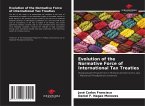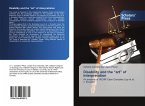This paper studies the binding force of the standards of the Inter-American Court of Human Rights, with the aim of determining whether they have binding force for the national courts of States that have not been convicted in the cases in which they were established. To this end, the concept of a standard is established, followed by an analysis of the different arguments put forward regarding its binding force, both those developed by the Inter-American Court itself and by specialised doctrine. From there, it develops, from a general perspective, the reception of Inter-American standards by national courts in order to finally analyse the reception and monitoring of the standard on the invalidity of self-amnesty laws. With the analysis of Inter-American Court cases which establish this standard and the courts of Argentina, Uruguay and Colombia which receive and use it, the conclusion is reached that its binding force depends, to a large extent, on the use made of it by national courts.
Bitte wählen Sie Ihr Anliegen aus.
Rechnungen
Retourenschein anfordern
Bestellstatus
Storno








